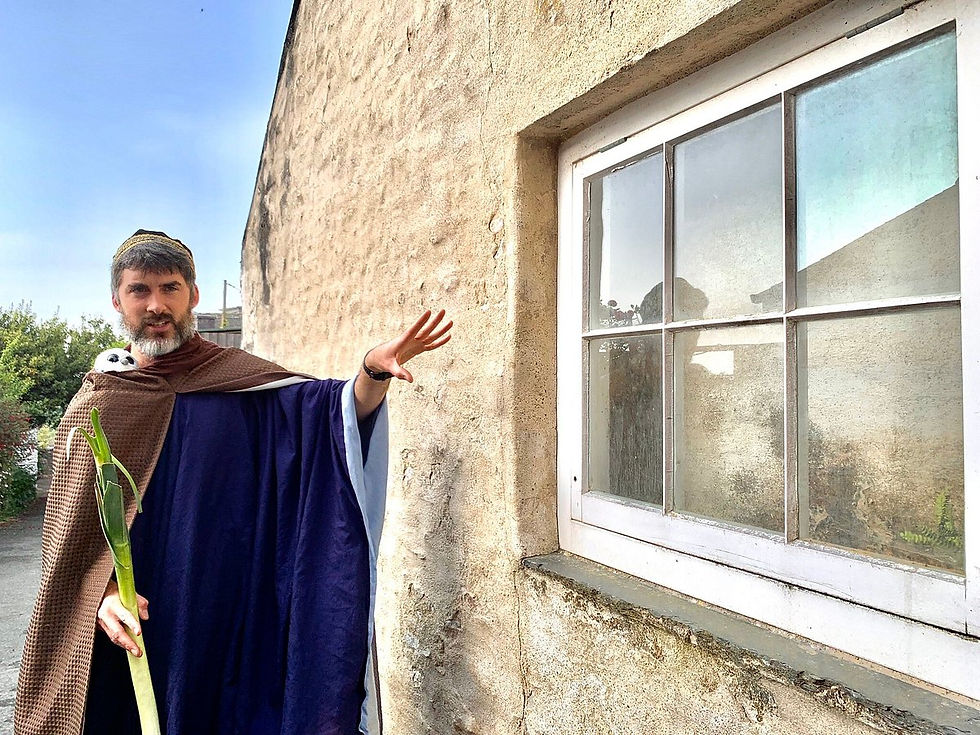Monk Poaching in the Pembrokeshire National Park
- firedonkeyproducti
- Apr 26, 2023
- 2 min read
The Pembrokeshire National Park is one of the best places in the British Isles to find an array of beautiful wildlife in their natural habitat. One such species is the indigenous monk, an increasingly rare sight in Great Britain. Each year tens of thousands of people flock to the Pembrokeshire coast in search of sightings of these rare monks in their natural habitat.

Medieval monks are a keystone species in the local ecosystem in Pembrokeshire. Unfortunately, the monk is also a target for illegal poaching, which can have devastating effects on the population and the ecosystem as a whole. For hundreds of years the monk has been poached for sport, food, and for exhibition in exotic zoos. Driven away from their natural habitats, the monks has been brought to the brink of extinction, and here in the Pembrokeshire National Park we have one of the only monk reservations in Wales.
In recent years monks have also been poached for their nostril hairs which are used in herbal remedies to treat a wide range of ailments. There is very limited research as to whether these remedies are effective, but ethically the anti-ageing properties of the monk nostril hair is a moot point when it comes to the preservation of the species.
Monk poaching in Pembrokeshire is illegal, and for good reason. Not only does it harm the monk population, but it also disrupts the delicate balance of the ecosystem which currently, as we all know, is hanging by a thread. Monks are slow-growing and slow-reproducing, which means that they are especially vulnerable to poaching. If their population declines too much, it can have ripple effects on other species that rely on them for food or habitat.
There are a number of licensed organisations situated in the Pembrokeshire National Park who take tourists on “ethical” monk poaching excursions, to experience an authentic 16th century reformation-era monk poach, whereby monks are caught in humane traps, and later released back into the wild, after souvenir photographs have been taken.
If you wish to partake in monk poaching, please note that in order protect the monk population in the Pembrokeshire National Park, it is important that visitors do not engage in any illegal poaching activities. This includes poaching monks without the appropriate licenses or using prohibited monk-poaching methods (e.g catapulting monks into the sea has now been banned since the Pembrokeshire Coast Monk Catapulting Act of 2016). It is also important to report any suspicious activity (e.g. the presence of a large catapult on the coast path) to the appropriate authorities, such as the park rangers or the local police.
To ensure that the monk population in the Pembrokeshire National Park remains healthy and sustainable, it is important that we all do our part to protect them. By respecting the laws and regulations that are in place to protect these incredible creatures, we can help ensure that they will continue to thrive for generations to come.
We hope your visit to the Pembrokeshire National Park is a pleasant and safe experience and we thank you in advance for helping to protect its unique and precious wildlife.




Comments